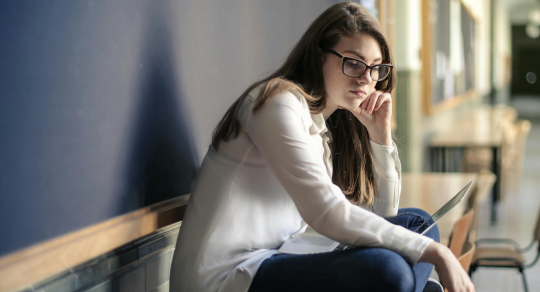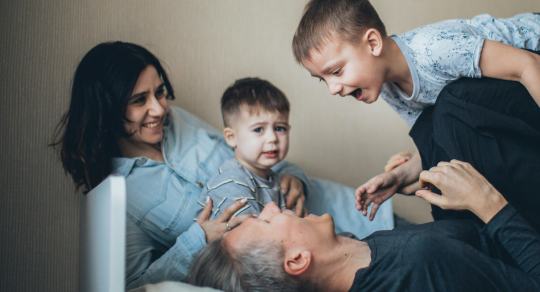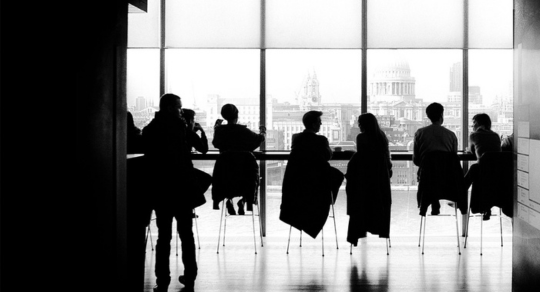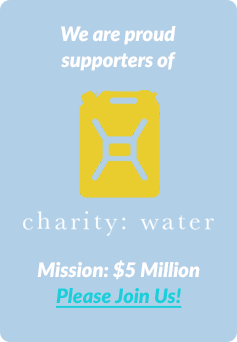Few of us know what’s coming in our lives. We make plans and think about the future in attempts to avoid the unexpected, but life has a mind of its own. We have retirement funds, life insurance and living wills, but still we can’t be sure about anything. It’s amazing we can manage at all given how little we really know.
But what if the not knowing were actually the best, most interesting part of life?
Think about the movies. What do you love about a good movie? The quirky characters? The suspense? The twist? The unexpected ending? If you knew everything that was going to happen in a movie, would you go? Would you enjoy it as much? With movies, we want to be entertained, so the element of surprise is essential!
So, what about our lives? Why can’t we just say, “Surprise me”? Why can’t we be okay with “the unexpected ending”?
We know one thing: our lives aren’t movies, the stakes seem much greater. Our lives can’t be scripted, but they aren’t totally random either. Every day we do shape our experiences by making choices one after the other, small, medium and large ones, and those decisions change our lives, sometimes for the better, sometimes not. It’s hard to predict the outcome, even under the best of circumstances.
When it comes to making decisions, it’s easy to become afraid of making a “mistake,” of getting things wrong, and that’s why we’d love to know what’s next. But maybe our problem isn’t as much “not knowing” as it is how we’re defining the outcomes of our decisions.
When you make a decision and the result is less than you’d hoped for, do you blame yourself for the choice you made? Do you ever beat yourself up for making a bad decision? Most people do.
What if you take a job because you thought it would offer you a nice income and a stable future, but later found out you hated it? Or what if you moved in with the person you were dating only to discover he/she is a terrible housekeeper and you just can’t take it? Often when things don’t work out as we hoped they would, we feel like we need to “pay” for our bad choices. You made your bed, now sleep in it.
Well, that kind of thinking couldn’t be further from the truth. Society tells us, “There are no second chances,” but in reality, there are – tons of them.
What if, instead of flogging ourselves, we could see our “mistakes” as something of value?
The good news is that our choices don’t determine who we are. Punishing yourself for a decision that didn’t align with your values is a huge waste of time, energy and self-esteem! The real tragedy would be not paying attention to how you feel, and staying in an inappropriate job or bad relationship because you’re afraid to admit that although you made the decision in good faith, it turned out to be wrong for you.
Every time you make a decision, you’re experimenting with what’s possible for you and your life. The outcome of any choice is really just a piece of feedback, like a guide or a clue to what really matters to you. The result of our decisions, if used as a scale, can help us determine the experiences and people we really want and need in our lives.
Take two! Think about the movies again and the actors who sometimes repeat the same scene over and over to fulfill the director’s vision. They look back at the scene and determine what’s working and what needs to be adjusted. With each take, they get closer and closer to how they want the story to play out until the director says, “It’s a wrap.” No one tells the actors they’re wrong or bad; they just make adjustments until they have the right feel for the overall picture.
What if you could see your choices as opportunities to adjust and give yourself the permission for a second or third take, if needed?
If you don’t have right and wrong attached to the outcome of your decisions, then they become a little easier to make. Learning from your outcomes can be an asset, a looking glass that reveals your true essence. Trust yourself. Sometimes we make personal adjustments so our decisions work for us and sometimes we just recognize that we need to choose again. The key to becoming comfortable with not knowing how things will turn out is to stop punishing yourself and start using the results of your choices to teach you who you are and what is important for you in your life.






